We need both compassion & social justice to end homelessness: Justice is a step beyond compassion | Housing First is the ultimate social justice at this time for Savannah – Food for the Hungry Blog
or
What is it going to take to get this community behind a
Housing First project?
Premise: we can’t wait a year (or more) for the Ten Year Plan to evolve, we need an early start approach to Housing First & building consensus on the value of Housing First as a model for Savannah!
Why can’t we wait you may (hopefully) be asking?
Because – we MUST be ready to give them housing (first) to help them get to this point:

We MUST help them get to this point! That’s possible when relationships are built, trust is there & the move to housing is in their sights! When the faith community engages on bringing hope to the hopeless amazing outcomes are possible!
Let’s start asking & answering the tough questions NOW!
Do we have in this community the political, social & personal will to step up to the Social Justice plate?
Note: we could keep adding references to other cities experiences with Housing First, but that would delay this post getting to you!
San Diego just came up on the radar screen as we were trying to complete this post with two compelling stories (from NPR) of success & processes that worked in their community!
It took San Diego a long time to raise the political will but they did it!
So watch the comments here and also watch the blog as additional posts are anticipated because waiting to get started delays the ultimate conclusion we must come to, we MUST get started – another year or more delay will push us to points of even more homeless people lost for whatever reason, lack of housing, violence or whatever takes them off the “list”!
At the end of the day we must ask ourselves, can we live with this situation (increasing levels of homelessness, affecting individuals, veterans, prison re-entry, mental health, women & children, youth & families) any longer, can we reject what our faith calls us to do, can we make it more important than other priorities, can we answer the question when at the pearly gates that we did what He expects of us & did we TRULY serve Him (with compassion AND justice) as we served the least of these?
Points to consider & actions to be taken:
- We need a taskforce or working group formed now to evaluate how Housing First can benefit this community (tax savings, reducing homelessness, addressing under-served homeless populations & determining if & how the faith community can support this model)
- We need a pilot / proof of concept project defined & begun for Housing First now, before the Ten Year Plan process is begun
- We need a “marketing / awareness” campaign in all areas of the community to dispel myths of Housing First as a model involving all segments of the community (faith, tourism, business sectors [Chamber, DBA], neighborhood associations & all citizens interested in ending homelessness)
- We must involve the CSAH & CoC to see how they could & should be engaged in providing other services to this project & making this solution a part of the overall efforts to end homelessness in this community
On to the Social Justice aspect of ending homelessness – involving the broader (inter)faith community:
Cannon (author of a book quoted below) challenges the church to do both (show compassion & engage in Social Justice):
The church must learn to move beyond acts of compassion and ask, ‘Why are so many people homeless?’ … Compassion responds to the effects of these problems. Social justice seeks to address their systemic causes. When we work to solve the roots of these problems, a Band-Aid is no longer being put over the wound. Instead, the emphasis is on getting rid of the disease that caused the wound in the first place. When the disease is eradicated, social justice is being lived out.
One Biblical basis for this is:
“The LORD loves righteousness and justice; the earth is full of His unfailing love.” – Psalm 33:5
From the referenced article it is important to get perspective on the scope of connection between compassion & social justice as drawn & presented in this book:
In The Social Justice Handbook, author Mae Elise Cannon points out the difference between compassion and justice. It’s an important distinction, because we need both.
For those of you who would like a better understanding of the relationship of compassion & social justice focusing on the differences we offer another quote from the referenced & linked post that got us onto sharing this line of thought:
Justice and compassion
The word compassion means “to suffer with.” Compassion is found in acts of service, like giving food to a neighbor or sheltering the homeless.
The word justice has to do with the correct use of power. Justice is found in ensuring that everyone has equal access to a resource. When we remove barriers that keep people at a disadvantage, we are bringing justice.
We’ve been promoting the “Choose Compassion, See What Happens” campaign (initiated by Savannah Christian Church at the end of last year). We still promote it with a little addition now that this concept of Social Justice be applied to issues by the church (see more below)!
Social Justice calls us to so much more than just compassion, it evokes “action” needing to follow up that compassion!
Yes, we still need compassion & the work it calls us to do. BUT it should stir us to ask even more deeply “what else could we & should we be doing” on addressing the issue we are called to “resolve”!
The ultimate form of social justice is often considered to be when the laws of the land address an in-justice perceived by the government that needs to be addressed in laws. In the case of homelessness this has sometimes been approached via a Bill of Rights.
Homelessness in the US also gets the attention of humanitarian organizations. We won’t deal a lot with it here but it should be noted that the UN Human Rights Commission has focused on our treatment of the homeless in the United States (the criminalization of homelessness & curtailing of feedings in many communities) & reports have been produced addressing this issue!
We aren’t at the point of advocating for a Homeless Bill of Rights where housing is designated as a right for all but we are close!
Note: even Speaker of the House John Boehner made statements to that effect (housing being a right) in an interview on ABC This Week – we have written about this on the blog & by reading here you can locate the transcript of those comments!
Why in other states have they gotten to this point of a Homeless Bill of Rights you may be asking?
Rhode Island was the first state to pass this legislation last year. Now California & Oregon (or Washington State) are reviewing & negotiating such legislation.
Is this just a State legislation issue or can local municipalities make a commitment to address solutions at this level?
We MUST ask:
So, if it’s not going to be legislation, which also drives action, what is it going to be that we do to bring social justice to the homelessness we see in our community that is not being addressed?
It is not enough to just say we are going to develop a new Ten Year (Strategic) Plan!
We MUST bring solutions to consideration that have already been rejected by the existing service providers in the CoC & ultimately by the staff of the CSAH as well! That rejection came publicly on Nov 1, 2012!
Is the issue of their rejection of Housing First ready to be brought to the table for serious discussion?
We are focusing our efforts on an under-served group of homeless populations in Savannah by bringing for consideration a Housing First model for this community.
We have written elsewhere about this effort & how we have a vision to present to the community.
We’ve presented it in three forums this year so far. The Exploratory Meeting for the Savannah Area Interfaith Taskforce on Ending Homelessness, the Chatham Youth Commission & the Chatham Safety Net Council.
The presentation to the Chatham Safety Net Council is available (embedded & viewable online) on our Housing First Savannah website!
We also have taken steps to organize the broader (inter)faith community to come together on the issue of social justice for this effort.
There are many things to be gained by just bringing the (inter)faith community together around tolerance of religious diversity in this community.
We already have seen the reaction to these attempts. We call it extreme isolation in some cases revealing itself as an apathy towards working together on the bigger issues.
We do have common ground & around a social issue like homelessness we should be able to come together & get past theological debate.
We must realize that our calling to address “The Just Church” is out there & we must respond to it.

“The Just Church”, a calling to bring social justice to issues the church sees in the world & our community!
What’s holding us back you are also hopefully asking!
Sidebar – the elephant in the room – we must be willing to discuss this & come to common ground that we are all here to serve the homeless – what happens after we get them housed is up to God – His plan & will are at work not ours & we are here to plant seeds, “conversions” will happen along the process as He intends & free will becomes His will:
Although theological discussions will advance better understanding amongst the various (inter)faith communities, we must not turn this into a “conversion” mentality or a debate of theology, as this will only divert attention from the people we are trying to serve out of the love we are all called to live out.
Conversions will happen as a by-product of the demonstration of love & getting people we serve to love themselves first, then they will be able to love others & come to the understanding of what their God has for them to pursue.
In other words, let God do His (or Her) work through us & the rest will take care of itself!
People say they don’t have time – the traditional street ministry (all volunteer) approach has its limitations of time to address the bigger issues, we understand that.
The very people who should be involved in this process, the denominational & non-denominational church communities as well as the other faiths (Jewish & Muslim, yes even the Atheist community) seem to be the way to bring focus & resources to bear.
Sidebar: Along this journey of engaging the (inter)faith community we must address a gnarly issue:
We must come together & study up on the issue of enabling in general & how we get past it in specifics.
This will be accomplished we feel by adopting one or more collaboration, study & learning strategies.
We propose bringing faith & community groups together to study one (or more) of these books (study guides or leaders needed):
- Toxic Charity
- When Helping Hurts
- Disrupting Homelessness (a Christian perspective)
- The Just Church
- does anybody have any other suggestions for study?
Then there’s the broader community & their role in ending homelessness. While they might not see their role as one of social justice, their motivations may be to simply make the community better, alleviating a condition that threatens the well-being of some aspect of the community.
Whether it’s tourism’s need to remove panhandling to our tourists from the experience of visiting Savannah or the Chamber’s need to address poverty in a deeper way, we need to all come to the table at some point & find common ground to move forward on all aspects of ending homelessness in this community.
Note: these are not the only community groups we feel should be at the table – if yours is missing please engage with us on an appropriate manner!
It’s becoming an also broader regional issue that needs to bring the County & outlying communities to the table as well at the appropriate time.
A final issue to consider: How do we fund a Housing First Project?
First of all, some may say this is the primary issue to consider & answer first, however, we must have a committed passion in order for others to want to come to the table! We have a passion, we have an initial set of collaborators to develop the model & now we must have community validation, engagement & action!
This is the call to Social Justice & call for Action point in our efforts!
Not as easy as it seems you say? Well we never know until we begin to explore opportunities – Land, Prototypes, Designs, Jobs, Housing, Collaborative partnerships, new emerging organizational structures (hybrid business models – L3C, B-Corp, Non-profits), outside funding opportunities (foundations, social good venture funds, pay for success models, business as mission opportunities & who wants to fund them these days).
All of this needs discussion, working groups, dedicated resources & a social entrepreneurial focus, not a bureaucratic focus or a business as usual focus!
A vision exists, the model is there for Savannah, now we need others at the table validating the vision & working to determine it’s usefulness in Savannah!
Conclusions
So you see, we must start somewhere. Building a broad community plan is a start but we need “early start” projects to develop their momentum.
We have talked elsewhere about not wanting government funds for our efforts because of the limitations that they often place on the solutions.
That does not mean that the governmental agencies & jurisdictions cannot be engaged. There is much they can do in the area of zoning, infrastructure & other influence as well as support that can bring it all together.
We have also talked more broadly & even pretty specifically at times about the role of the CSAH & CoC in all of this. They have their role pretty well defined as it relates to HUD funding & how that part of their efforts works for getting federal & state dollars into the community to address funding of projects that meet the requirements of those funds.
CSAH was formed in 1989 through State legislation. Their CoC was formed in response to the federal requirements to apply for & receive funding from the State & Federal governments.
Note: We are on our THIRD Ten Year (Strategic) Plan – why haven’t they worked yet or have they? We don’t really know because we haven’t been managing to the Plan, making adjustments during the cycle, not waiting for the next Ten Year Plan to adjust priorities & address current realities!
All of this provides confusion & uncertainty in how we as a community can come together to address homelessness (together) based on previous operational realities of the CSAH.
If the CSAH is seriously interested in broadening the tent then they have to (with the support & encouragement of the City) do something concrete to demonstrate their commitments – like appointing funding a Development Officer who will center the ship on funding by grants or other approaches presented above to begin preliminary work that proves it can work & provide the foundation for a meaningful Ten Year Plan with some proven capacity to move forward collaboratively & collectively as a community on ending homelessness together!
This One Community Plan we are tasked with developing by the City which they will then fund is a huge undertaking when all aren’t coming to the table with the same expectations!
Our first task must be to level the playing field. After all that’s what Social Justice is all about!
So we leave you with a question:
How will we level the playing field, bring transparency to the process & provide for accountability with oversight by & for the people being served as well?
via Justice is a step beyond compassion – Food for the Hungry Blog.
Related articles
- When we reject giving housing first to our homeless are we rejecting Jesus? | Is there a call for social justice to the churches & God’s people here? | Sculpture of Jesus the Homeless rejected by two prominent churches | Toronto Star (homelessnessinsavannah.wordpress.com)
- Are you ready to: Restart your Compassion And Justice? | compliments of: YouVersion, the Bible App – Featured Reading Plans (homelessnessinsavannah.wordpress.com)
- Why is there a mystery surrounding the CSAH Charter & CoC membership guidelines? | CSAH About Us (homelessnessinsavannah.wordpress.com)
- Why Housing First Matters | Housing First Works | When Banks & the Community Help | OCC: Community Development Investments (February 2012) – Ending Homelessness: Financing Permanent Supportive Housing (housingfirstsavannah.wordpress.com)
- Why Did the Evolution of Social Justice Leave the Homeless Behind? (homelessnessinsavannah.wordpress.com)
- Have you wondered how to get our homeless working again? | Jobs can come with (or after) Housing First! (homelessnessinsavannah.wordpress.com)
- Are we truly a mecca for the homeless here in Savannah? Or, is this part of somebody’s Master Plan? (homelessnessinsavannah.wordpress.com)
- A Presentation on Housing First, saving healthcare dollars & more for taxpayers in Savannah! (homelessnessinsavannah.wordpress.com)







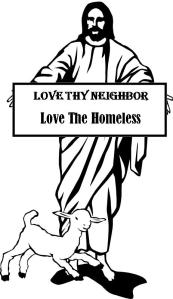


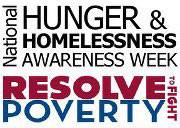





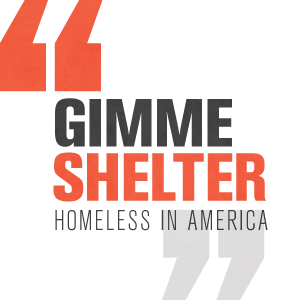










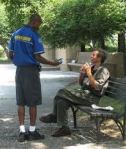






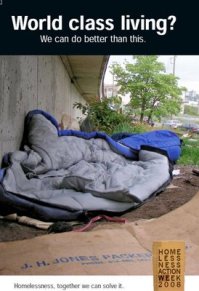



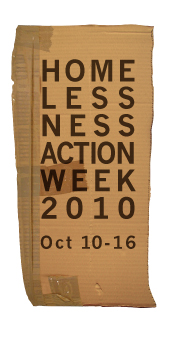 Savannah Needs a Homelessness Action Week too!
Savannah Needs a Homelessness Action Week too!





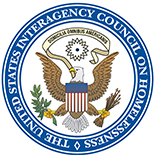




Pingback: Some more on Social Justice | We need this dialog | It’s NOT Socialism | Is Social Justice a Codeword? | Homelessness in Savannah, Stories for Learning
Reblogged this on Housing First for Savannah's Chronic Homeless and commented:
It’s time to see if we have the political, social & personal will to get to make Housing First a priority to end homelessness for a group of people for whom “one size doesn’t fit”!
Pingback: Family Homelessness is Increasing, But Multiple Strategies Can Reduce It | Humane Exposures Blog